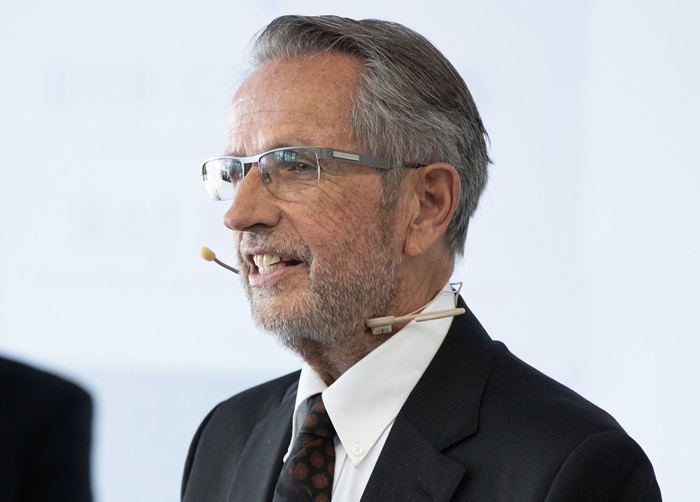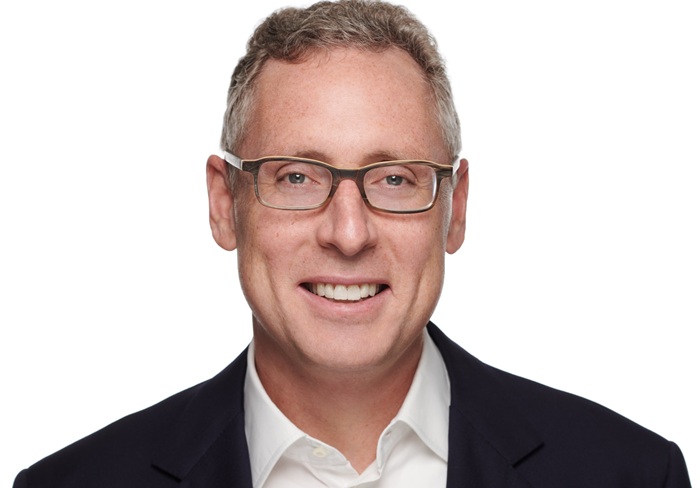Who’s Keeping the Faith at Work? A Whole Lot of Business Leaders!
By Chris Benguhe, RaeAnne Marsh and Elaine Pofeldt | May 8, 2025 11:13 am
Respecting your employees’ spiritual beliefs is the new safe place for diversity and inclusion!

After what seemed like a downward trend in the latter part of the 20th century and the beginning of this one to tamp down on the expression of faith in the public square, companies nowadays not only in the United States but overseas are not just allowing but encouraging expressions of faith along with other personal beliefs in the workplace. (iStock photo/gustavofrazao)
A few years back when we first noticed an upturn in the presence and respect for faith and beliefs in the workplace, we had no way of knowing it was just the beginning of a trend that would continue to grow and, ultimately, explode.
That’s exactly what happened with an overwhelming majority of major U.S. companies now actively supporting faith in the workplace, and the trend has recently even found its way across the pond to England as well.
After what seemed like a downward trend in the latter part of the 20th century and beginning of this one to tamp down on the expression of faith in the public square, companies nowadays not only in the United States but overseas are not just allowing but encouraging expressions of faith along with other personal beliefs in the workplace.
The Religious Freedom & Business Foundation, led by Brian Grim, Ph.D., has been tracking this shift, noting that businesses are embracing diversity practices that go beyond legal requirements to accommodate religion in the workplace. This movement aligns with the growing emphasis on allowing employees to bring their “whole selves” to work, fostering environments of mutual respect and inclusion.
Grim founded the Religious Freedom & Business Foundation in 2014, a nonpolitical, nonpartisan group that is not affiliated with any one faith but works to help organizations incorporate religious diversity into their corporate values and program because Grim believes “that the economic value and social benefits of robust religious diversity and liberty for all are tremendous.”
The REDI Index, which he helped develop, benchmarks faith-friendly workplace policies and actions, measuring how companies integrate religion and belief into their diversity and inclusion initiatives.
The most recently available REDI Index report highlights key trends, including the increasing presence of religion in corporate diversity programs, the growth of faith-based employee resource groups, and the implementation of policies that accommodate religious needs in the workplace. According to that report, more than 85% — 429 companies of the Fortune 500 — now embrace religion as a central factor in their commitment to diversity. That’s an incredible 40% increase from the number recorded the year before.
And Grim says we are at a real “tipping point” with 62 companies — 12.4% — that now also feature faith-based employee resource groups (ERGs). These ERGs, which provide a platform for employees to express their faith and contribute to a more inclusive work environment, are a testament to the growing recognition of religion in the workplace.
And that trend has exploded in England as well, with the number doubling of FTSE 100 companies giving a formal mechanism to support people of faith in their workplaces.
“These changes are particularly remarkable given the current global pushback against diversity programs, under which most faith initiatives have traditionally been situated,” says Grim. “It appears religion is not getting lost amidst the disruption to the general field.”
Why is this happening? Grim has a few thoughts on that as well.
“There are several factors at play,” he explains. “First, we’ve reached a critical mass of name brand companies that are creating faith-friendly workplaces, which makes it acceptable to other companies to move in that direction who previously have been hesitant or unable to see a good model they could follow. Second, some external triggering events related to religion (but not necessarily religious) become non-ignorable as they impact people’s feelings of safety and/or belonging in their workplaces. And third, religious diversity is growing in the U.S., and special attention to this important characteristic is more logical than decades ago when most people identified as Christian.”

Companies embracing faith-based employee resource groups have seen measurable benefits in engagement, productivity and brand reputation. (Pixabay/geralt)
The bottom line is that in the United States, an increasing number, about 83% of adults, believe in God or a universal spirit, while globally, studies indicate that more than 80% of the population identifies with a religious group. And respecting those beliefs and values are a crucial component of any real push for diversity and inclusion for a whole lot of reasons that directly serve the well-being and real value of the company, such as enhanced employee engagement and well-being when employees feel their beliefs are respected. Faith-friendly policies also contribute to a sense of belonging and psychological safety.
It creates a stronger workplace culture because religious inclusion fosters respect and a greater understanding among employees from diverse backgrounds, strengthening company culture and promoting unity.
Companies acknowledge religious diversity also attracts greater talent from various backgrounds and employees are more likely to stay in workplaces that accommodate their personal values.
Encouraging open discussions about faith and beliefs also fosters more creativity, collaboration and greater innovation because employees feel free to be themselves at work.
And companies embracing faith-based employee resource groups have seen measurable benefits in engagement, productivity and brand reputation.
Since the Center for Social Capital is all about the value of people-centric leadership, we once again bring attention to this core principle of faith at work by bringing attention to just a few of the major companies that have shared their thoughts on the subject and are leading the way to respect faith at work.
Julie Sweet, Chair & CEO at Accenture
The Accenture website calls attention to the importance the company and its leadership place on this aspect of its culture, stating, “Under the very purposeful guidance of Julie Sweet, CEO of Accenture, [Accenture] has emphasized [and] has fostered interfaith dialogue through initiatives like the Interfaith Employee Resource Group (ERG), which encourages conversations about faith in the workplace. It’s all part of Julie’s bedrock commitment to diversity oveall (sic) and respect for diverse employee beliefs and equality overall.”
The website lists the following programs and policies:
- Interfaith Employee Resource Group (ERG)– Accenture has an Interfaith ERG, which provides a space for employees of all faiths and belief systems (including atheists) to engage in discussions about religion, spirituality and workplace inclusion.
- Faith-Based Events & Celebrations– The company hosts faith-related events, including Ramadan Iftar meals, Sabbath meals, Diwali celebrations, and prayer breakfasts, allowing employees to share their traditions and beliefs.
- Religious Accommodations– Accenture ensures that religious accommodations are built into its policies, empowering employees to request what they need to practice their faith comfortably at work.
- Commitment to Inclusion & Diversity– Accenture’s leadership actively promotes a workplace free from bias, ensuring that employees feel respected and empowered regardless of their religious beliefs.
Says Julie, according to Accenture’s website: “You can only have a culture of equality if you start with the belief that diversity matters, that it’s not only the right thing to do, but that it’s an important part of your business. You then have a commitment to actually have a diverse company. When I think about what steps that we’re taking at Accenture to build a culture of equality, I go right back to the research that we published that laid out a roadmap because it is the roadmap that we followed and it has three components. The first is leadership and that’s about having commitment from the top, setting clear goals, holding leaders accountable and being very clear that our commitment to diversity and to a culture of equality are a business priority, just like our other business priorities. The second component of that roadmap is about programs and policies and making sure you have the right ones in place and that’s everything from having the right Employee Resource Groups, to things like parental leave. And the third component, which is critical, is all about having the right environment, which means that people can come to work, they can bring their whole selves to work and that not only do we make sure that the great diversity of our workforce is reflected at our leadership tables, but that those who are at the leadership table, not only have a seat there, but they have a voice.”
Stephan Jacob, Co-Founder & Chief Global Officer at Cotopaxi
“The notion that ‘you can’t talk about religion at work’ never resonated with me,” says Stephan Jacob, Cotopaxi co-founder and chief global officer. Recognizing that faith and religion are deeply personal, he acknowledges that, while it can provide wonderful guidance, comfort and grace, it also has the potential to cause division — but, he says, “To me, that is all the more reason to ensure that we provide a work environment at Cotopaxi where faith is not a taboo topic but is acknowledged as a contributor to a thriving team of diverse talent.”
“The notion that ‘you can’t talk about religion at work’ never resonated with me.” —Stephan Jacob (iStock image/Yuriy Bucharskiy)
In his private life, Stephan serves as an Elder at a Presbyterian church where the guiding principle is “No matter where you are in your journey of faith, you are welcome here.” “For me,” he shares, “this means engaging from a place of love, openness and genuine appreciation in every interaction — inside and outside our community.”
This stance regarding faith, he notes, is essentially what underlies the culture at Cotopaxi. “We try to role model this as a leadership team. We don’t just use the ‘heart’ emoji on Zoom/Google Meet; we actually use the word ‘love’ a lot.” Observing that although this may seem strange in a corporate environment, Stephan has found that, if done right, it fosters vulnerability, openness and genuine care for each other — which lays the foundation for Cotopaxi team members to have candid conversations about topics of faith and other aspects of their true selves.
To that point, he shares, “By far my favorite meetings at Cotopaxi are our ‘Life Hikes,’ which we host every two weeks. One Cotopaxi team member gets ‘on stage’ to share their life story, however they deem fit. Everybody else just listens. I can’t tell you how proud and grateful I am for the candor with which our team has shared their life experiences, struggles, faith and all, and the wonderful, judgment-free reception and outpouring of love by fellow team members in the audience!”
For people whose belief system is an integral part of how they live their life, there may be physical aspects, from diet to rituals of observance, to bringing their authentic selves to work. For Cotopaxi, being a ‘remote first’ organization with employees working primarily from home makes such accommodation easier. But it’s not left to chance. “At the office and at company events,” Stephan says, “we err on the side of flexibility to accommodate the needs of our employees, whether those needs originate in faith traditions, physical or mental health needs or other. Our only ask is that employees are up-front about their needs, so we can figure out solutions together.”
Stephan believes that, all else being equal, a more diverse Cotopaxi brand will outperform a less diverse Cotopaxi brand. He notes there is ample evidence that creativity, operational excellence and financial performance all benefit from diversity — viewpoint, political leaning, ethnic, gender, sexual orientation and faith. “Yes, these topics can create momentary discomfort and insecurity, building and managing a diverse organization requires more proactive leadership and People Ops resources,” he observes. “That said, we firmly believe that the benefits of creating an environment where our team feels comfortable to bring their full self to work and the amazing talent pool that is drawn to such environments by far outweighs those challenges.”
Alex Chriss, President & CEO at PayPal
PayPal has been on our Social Capital radar for a while because it is known as a purpose-driven company; its leadership strives to make decisions guided by a set of beliefs that they identify as the foundation for how they conduct business every day. Through its One Team Behaviors, PayPal aspires to hold the highest ethical standards, to empower an open and diverse corporate culture, and commit to treating everyone touched by the company with dignity and respect. It welcomes its employees to challenge the status quo, ask questions and find solutions.
To further this corporate culture, PayPal has in place “Believe,” an employee resource group for its Interfaith Diversity & Inclusion Community.
On its website, PayPal states, “We believe all employees have the right to bring their whole self to work. Faith and worldviews are core to who we are — our values and beliefs — and to how we conduct business. The mission of Believe is to foster an inclusive work culture and to promote holistic wellbeing by providing a forum to openly exercise and celebrate all faiths and worldviews while working. Believe exists to create awareness and understanding of faith, hope, love, empathy, respect for one another and service toward our customers, communities and co-workers.”
Believe’s core objectives are to:
- Embrace– Create a safe environment where our faith and worldviews are intrinsically valued and supported.
- Transcend– Increase understanding, awareness and cultural sensitivity to our diverse faiths and worldviews.
- Celebrate– Share our traditions and holidays in a fun and engaging way.
- Be open to all– Welcome people of all faiths and worldviews, including all interested in experiencing or learning, so employees can bring their whole self to work.
This definitely seems completely in accord with the philosophy and leadership style of PayPal’s leader, Alex Chriss, who is on the steering committee of the Council for Inclusive Capitalism.
That organization’s platform for action states, “Making economies more inclusive requires trying new ideas and making progress. Individually, Council members commit their organizations to specific, measurable actions and publicly declare these commitments on the Council’s online platform.”
Haviv Ilan, President & CEO at Texas Instruments; Rich Templeton, Chairman of the Board at Texas Instruments
When Texas Instruments leadership transitioned from former CEO Rich Templeton — who continues with the company as chairman of the board — to president and CEO Haviv Ilan in 2023, the company continued its commitment to practicing diversity and inclusion — and faith is an important part of that equation.
Among the employee-led ERGs are three that are faith-based — Muslim Employee Network, Christian Employee Network and Jewish Employee Network — which were founded in 2001. These help build a bridge between different ideologies and provide the employees with opportunities to learn more about their colleagues’ beliefs and traditions. A few examples of faith-based events are “Religious Freedom and Inclusion Presentation – History of Religion in the US,” joint religious fundraising luncheons, religious panel discussions and visits to places of worship.
To support employees in living their faith, TI offers time-off flexibility around religious holidays and serenity rooms for prayers or worship. The serenity rooms at several of TI’s campuses are open 24 hours a day, 7 days a week to any employee and serve as a quiet space for prayer or meditation.
TI, as a global company, is well aware it has a workforce that represents a wide range of diverse worldviews. In offering faith-based ERGs, TI provides employees with opportunities to drive greater understanding across cultural boundaries.

“What one person sees as an ‘accepting’ environment might not feel that way to another, especially if their beliefs are less familiar or misunderstood. It requires humility, continuous learning and open communication to bridge those gaps.” —John Goodbrake (iStock image/TarikVision)
John Goodbrake, Owner & CEO at Master’s Transportation
“At Master’s Transportation, our identity as a faith-based organization is reflected in our name and rooted in our mission: moving people forward. However, we recognize that our mission applies to everyone, regardless of their beliefs. We serve and support individuals from all backgrounds with the same level of care, respect and excellence,” says John Goodbrake, owner and CEO of Master’s Transportation.
“We practice tolerance of discussions of faith by creating a workplace culture grounded in mutual respect, open dialogue and compassion. While our faith informs how we lead, serve and grow, we never impose our beliefs on others. Instead, we aim to live out our values — integrity, service and dignity — so that our faith is seen in how we treat people, not just in what we say.
“By fostering an environment where all employees feel valued and safe to express who they are, we uphold the true spirit of our mission. This not only builds trust but also reflects how faith can work in all places, through kindness, empathy, and shared purpose.”
Expressing the company goal that employees bring their “whole self” to bear on their shared, mission of moving people forward, John explains, “We do not have a cafeteria, and the majority of people do not wear uniforms, so there is a great deal of diversity in dietary and clothing options that employees can decide for themselves, thanks to Master’s flexible policies. Additionally, our benefits package allows employees to use flexible days off to observe faith-based days. The new headquarters also features multiple reading and quiet areas for employees.”
And he makes an important note in observing that one of the greatest challenges in creating an accepting environment for faith diversity is the wide range of beliefs and practices that exist. “At times, we may not have a deep understanding of all faith systems, which can make it difficult to ensure that everyone feels equally recognized and respected,” he says. “What one person sees as an ‘accepting’ environment might not feel that way to another, especially if their beliefs are less familiar or misunderstood. It requires humility, continuous learning and open communication to bridge those gaps.”
Despite the challenges, John believes the advantages are powerful. “At Master’s, we’re building a workplace where individuals are encouraged to let their faith inspire their work, to show how faith moves people forward and contributes to a thriving business. We have seen firsthand how faith-based values, such as integrity, compassion and service, lead to personal and professional growth.
“Master’s is a place to explore whether your faith can flourish at work and whether work can be a space for your faith. We believe it absolutely can — and should — be both.”




